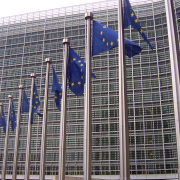EU agriculture ministers convened for an informal meeting in Helsinki on Tuesday 24 September to discuss soil carbon sequestration as a climate action in agriculture. The discussion focused on supporting carbon sequestration through the EU’s Common Agricultural Policy (CAP).
Minister of Agriculture and Forestry Jari Leppä chaired the meeting.
Funding needed to support actions
Soil carbon sequestration on agricultural land is one of the key means of mitigating climate change. Good farming techniques can help agricultural land absorb more carbon from the atmosphere, and these techniques can be supported through the CAP.
According to Minister Leppä, soil carbon sequestration makes farmers key providers of solutions.
“In addition to mitigating climate change, the accumulation of soil carbon improves soil structure and quality, which helps agriculture adapt to climate change. Soil that is in good condition is also more productive and brings economic benefits to farmers,” Minister Leppä said.
The ministers heard the views of agricultural stakeholders and environmental organisations as well as the European Commission and the European Parliament on soil carbon sequestration and climate action in agriculture. According to the ministers, the CAP provides sufficient capacity to increase carbon sequestration, but funding for agricultural policy must be secured.
Several practical methods for carbon sequestration
The debate highlighted the need to consider local and regional special needs. Methods for measuring carbon must be improved, research must be increased and translated into practice, and the development of innovations must be supported. Grasslands, crop rotation, reduced tillage, direct sowing, afforestation and agroforestry were highlighted as concrete actions in a number of speeches.
“We should also remember that the primary task of farmers is to produce food. We need to find win-win solutions that benefit both farmers and nature in order to keep agriculture commercially viable,” Minister Leppä said.
During the informal meeting, the ministers also had a chance to visit a dairy farm and a forest management site. Among other things, the visits presented good practices to promote animal health, Finnish food production and the role of grasslands in carbon sequestration.
The CAP reform is an opportunity for member states to support soil carbon sequestration and other environmental measures in agriculture through national support measures. In addition, the reform includes mandatory requirements for all member states to promote, for instance, good soil condition and the preservation of soil carbon stocks.
The Informal Meeting of Ministers for Agriculture was the last of the six informal meetings of ministers held in Helsinki during Finland’s Presidency of the Council of the EU.


